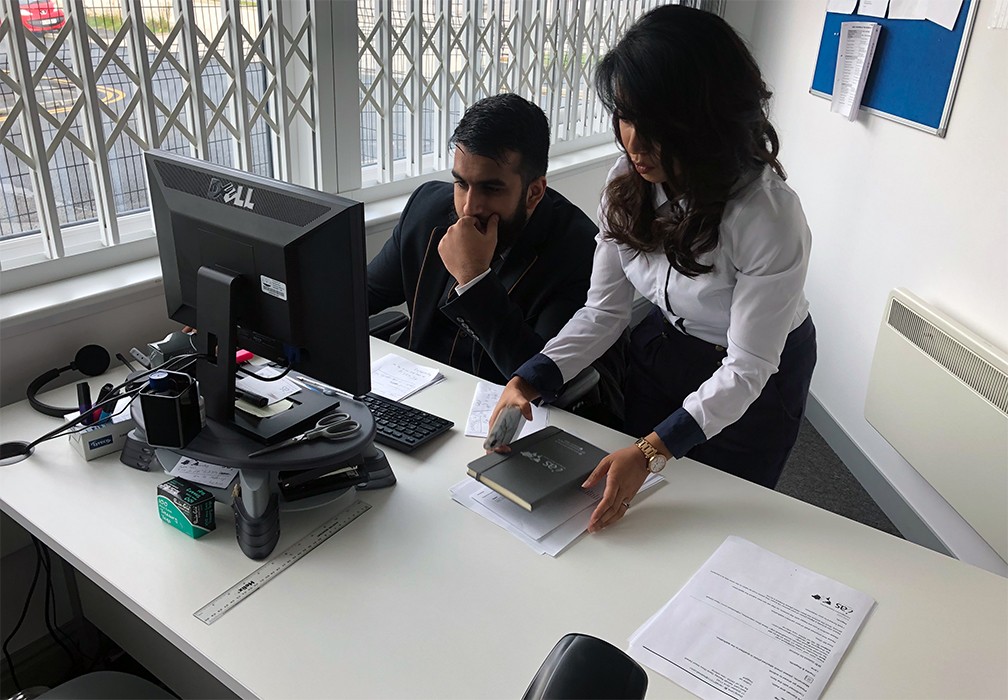Spain Permanent Residence
Individuals from the Philippines may qualify for permanent residence after five years of living in Spain if they are not otherwise eligible for the accelerated path towards naturalisation that is offered to some Filipino nationals.
If you are planning to move to Spain or have not qualified for citizenship after two years based on the agreement between Spain and the Philippines, you may need to apply for permanent residence after you have been in Spain for five years. Our immigration lawyers at Total Law can help you navigate the application process. You can call us today at +44 (0) 333 305 9375 for immediate support.
Permanent Residency in Spain for Filipinos
Spain’s permanent residence card is called the Tarjeta Comunitaria Permanente. It is a step up from a national visa-based residential permission and may be available after five years of continuous residence in Spain.
Under the traditional immigration pathway, permanent residence is a significant step towards eventual eligibility for Spanish citizenship, as it is designed to help individuals live in Spain until they can reach the minimum residential requirement, though it may also be extended instead of being upgraded to citizenship.
Filipino nationals should note that while a Spanish permanent residence card is usually an essential intermediary step towards naturalisation, it may not be required for individuals who were born in the Philippines and therefore qualify for an accelerated path towards Spanish citizenship that may be attainable after only two years of residence in Spain, thus skipping the permanent residency stage.
Filipino citizens who do not hold citizenship by birth, or individuals with other nationalities may not be able to benefit from this agreement, however, so it is important to understand the nuances and requirements of acquiring permanent residency in Spain either for a long-term solution or as a step towards naturalisation.
Page Contents
- Permanent Residency in Spain for Filipinos
- Requirements for Permanent Residency in Spain
- Documents Required for Permanent Residency in Spain
- How to Get Permanent Residency in Spain as a Filipino?
- Residency Renewal and Citizenship in Spain
- Permanent Residency Application Processing Times
- Costs for Permanent Residency in Spain
- Can Filipino Nationals Skip Permanent Residency in Spain?
- Permanent Residency in Spain for Family Members
- How Can Total Law Help
- FAQ
Requirements for Permanent Residency in Spain
To qualify for permanent residence, individuals must usually show evidence that they have maintained five years of continuous and legal residence in Spain. This is usually done by qualifying for one of the available long-stay visas, which may be extended for up to five years at which point the upgrade of one’s residential permit may be permitted. During this time, it is important that you do not have any significant gaps in your time spent living in Spain. While you may travel for short periods, it is essential that you spend the vast majority of your time inside of the country and that you have adequate evidence thereof.
As with other residential requirements, failure to show documents proving that you maintained this residence duration without breaks may invalidate your eligibility for the upgraded permit. Also, you must maintain ‘legal’ residence, meaning that your visa must have been extended when needed and that you must have stayed in line with immigration rules and the particular conditions of the visa you were granted.
Finally, applicants must show that they do not negatively impact the greater public interest, meaning that they must show evidence of a clean criminal record as well as a health certificate showing that they have no significant health concerns that may pose a risk to the general public or the Spanish healthcare system due to infection risk.
Documents Required for Permanent Residency in Spain
Permanent residence applications must usually be required by the appropriate evidence to show your eligibility. While the exact documents that you will need to submit may depend on your individual circumstances, you should be prepared to present the following:
- Details of any existing residential permissions
- Your application form
- Proof of continuous residence (usually a minimum of five years is required)
- Details of your health insurance
- Your medical certificate
- Your Criminal record certificate
- Financial details showing you can support yourself
- Any relevant details of family members or your partner
- Your registration details

How to Get Permanent Residency in Spain as a Filipino?
Individuals from the Philippines who are not eligible for naturalisation after two years may need to follow the traditional immigration path and apply for permanent residence after five years of living in Spain. To do so, you should make sure that you have gathered all the necessary documents before you start your application. You may apply once you meet the requirements and your current temporary residential permit is close to expiry. You may start this application up to 60 days before this happens.
The application form for permanent residence is the EX-11 form. You will need to submit this along with your supporting evidence and the application fee. Usually, this can be done at your local police station in Spain or another relevant immigration authority.
After the initial processing of your application, you will be asked to return to the police station to submit your fingerprints. Once this is done, the final processing stage begins after which you may collect your permanent residence card from the police station.
Residency Renewal and Citizenship in Spain
Permanent residence cards in Spain are usually valid for five years, after which you may apply for citizenship. If you choose to renew your permanent residence anyway, you will need to provide evidence of your Spanish address, as well as your passport and existing residence card. You will also need to re-submit your fingerprints when applying to renew your permanent residency.
You may be able to renew your permanent residence permission after returning from living elsewhere in the EU or EEA for an extended period, but you may not be able to if you lived further abroad for too long. If you have previously been a permanent resident of Spain but lost your permission after leaving the country for a while, you may want to consult with an immigration lawyer who can help you explore your options. Our team of immigration experts at Total Law can help you with this and support you as you apply for the most suitable path towards reclaiming your life in Spain. You can call us today at +44 (0) 333 305 9375 for immediate help.
Permanent Residency Application Processing Times
The processing times for permanent residence applications can take up to three months in total, but there is always a chance for delays.
You should remember that the overall time it takes to qualify for this permit is significantly longer as it requires at least five years of continuous residence in Spain.
Costs for Permanent Residency in Spain
Applicants who are hoping to obtain a Spanish permanent residence permit should be prepared to pay the application fee, which usually sits at around €80.
You might incur additional costs on your immigration journey so remember to always check what may apply in your specific circumstances to avoid any surprises.
Can Filipino Nationals Skip Permanent Residency in Spain?
The Spanish immigration path for Filipino nationals can be a bit different from the norm, as there is a special agreement between Spain and the Philippines that allows for easier immigration for some individuals. Generally, this agreement offers accelerated citizenship for individuals who hold Filipino nationality by birth, meaning that they may qualify for citizenship after only two years of living in Spain with a valid temporary residential permission. As this is significantly sooner than permanent residence would be required, it is usually not necessary to apply for this stage of available residential permissions.
However, you should note that this doesn’t necessarily apply to all applicants from the Philippines and individuals who only gained citizenship by naturalisation at a later point or those who lived in the Philippines without citizenship may not qualify. In this case, the Spanish immigration process will need to follow the traditional route and may require an application for permanent residence after five years of living in the country, if you are working towards citizenship through residence, which takes ten years.
Individuals who are coming to Spain on grounds of Spanish ancestry or marriage may still be eligible for a faster path towards naturalisation according to the immigration path that they have qualified for.
Permanent Residency in Spain for Family Members
Family members of Spanish residents may also be eligible for permanent residence under a dependent visa pathway. Usually, the easiest way is if a Spanish citizen applies for their family members, but if you wish to bring your loved ones before you have qualified for naturalisation, you may still be able to do so.
Non-EU relatives who have joined a Spanish resident with temporary or already established permanent residence will usually qualify for permanent residence after they have reached the five-year residential requirement themselves. Whether this lines up with the main resident will depend on whether or not you have entered Spain at the same time.
You should be aware that eligibility to bring family members is limited to direct relatives. This may include the Spanish resident’s spouse or partner, children, or parents. Children will usually need to be less than 18 years old to qualify, but an exception may be made if your child has a disability that requires continued care past adulthood. Parents who wish to accompany or join their child in Spain must usually have reached a minimum age of 65 years and have a clearly established dependency on the Spanish resident who will be supporting them, but the age requirement may be dismissed if there are humanitarian concerns.
How Can Total Law Help
Whether you are ready to apply for permanent residency in Spain or are trying to figure out if this is the best path for you, it is essential that you understand the nuances of this immigration step and whether or not you may qualify for accelerated naturalisation instead.
Seeking specialist support can make the application process significantly easier and help you feel prepared when finally submitting your application. Our team of experienced immigration lawyers are experts in all aspects of Spain’s permanent residency permission and will be happy to assist you. You can call us today at +44 (0) 333 305 9375 to get started.
Advice Package
Comprehensive immigration advice tailored to your circumstances and goals.
Application Package
Designed to make your visa application as smooth and stress-free as possible.
Fast Track Package
Premium application service that ensures your visa application is submitted to meet your deadline.
Appeal Package
Ensure you have the greatest chance of a successful appeal. We will represent you in any case.

The Advice Package
During this untimed Advice Session with our professional immigration lawyers in London, you will receive our comprehensive advice, completely tailored to your needs and your situation.

The Application Package
With our Application Package, your dedicated immigration lawyer will advise you on your application process and eligibility. Your caseworker will then complete and submit your forms to the Home Office on your behalf.

The Fast Track Package
Our Fast-Track Application Package is a premium service for those who need to submit their application in time with their deadlines. Your case will become a top priority for our lawyers and you will benefit from our highest-quality services.

The Appeal Package
By choosing our Appeal Package, you can rely on our lawyers’ legal knowledge and experience to ensure you have the highest chance of a successful appeal. We will also fully represent you in any hearings/tribunals.
Related pages for your continued reading.
FAQ
While Spain doesn’t usually offer dual citizenship for foreigners, there is a special agreement that permits natural-born Filipino nationals to maintain their citizen status in the Philippines while also applying for Spanish naturalisation. Whether you qualify will depend on your individual circumstances, but you will usually also be eligible for accelerated naturalisation if you do, which means that permanent residence might not be a required step. It is best to discuss this with an experienced immigration lawyer to figure out what might apply to you.
Permanent residence is a residential permission that is issued with a 5-year validity period that is usually used as a stepping stone towards citizenship in Spain. While it grants additional rights and a longer stay before requiring renewal, it does not give individuals the right to vote in Spain.

